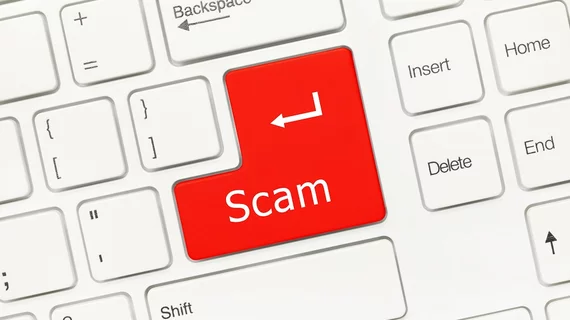Former Johnson & Johnson sales rep indicted for defrauding hospital out of hundreds of thousands of dollars
A former sales representative of Johnson & Johnson unit DePuy Synthes was indicted this week for allegedly defrauding a Boston area hospital out of hundreds of thousands of dollars.
Between January 2016 and June 2017, Matthew Capobianco, 45, of Winchester, Massachusetts, is alleged to have falsely documented his sales numbers on invoices submitted to the hospital’s billing department. On those forms, Capobianco is said to have reported selling the hospital more expensive spine products than they purchased and in greater quantities. As a result, the hospital was substantially overbilled, and Capobianco received higher commissions for products that he did not actually earn.
Furthermore, a release on the case from the Department of Justice alleges that the sales rep also “interfered with the hospital’s sterilization processes.” According to the claim, he instructed a subordinate to bring a spinal implant into an operating room for a surgery without the product first being sterilized, despite understanding the risks associated with doing so.
That happened in 2016; in 2017, Capobianco himself allegedly brought unsterile DePuy spinal implants into an operating room for a surgeon to use. However, this time he was stopped by hospital employees who were concerned about the risks of using unsterile implants; those employees confiscated the products and Capobianco was banned from the hospital that same day.
The sales rep allegedly made false statements to federal authorities about his actions that day and in the months leading up to it.
In total, Capobianco was indicted on eight counts of wire fraud and one count of making material false statements. He was arrested on June 26 and released on conditions following his arraignment.
In an emailed statement to Health Exec, DePuy Synthes maintains that claims against the company itself regarding the matter have been resolved.
"All government claims against the company have been resolved and any allegations of improper billing have been dismissed against the company as part of a civil settlement. The settlement was not an admission of liability under any applicable laws," the statement reads. "The allegations of a former employee’s conduct outlined in this indictment are contrary to company policy. We are committed to ensuring our employees conduct business in a way that complies with our Credo and with all laws and regulations, and we have extensively cooperated with the government’s investigation related to this indictment."
If found guilty, Capobianco faces prison time and a minimum fine of $250,000 for wire fraud and another $250,000 for making false statements.
Read the DOJ statement here.

